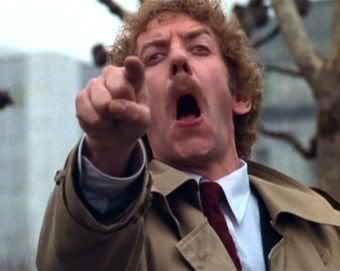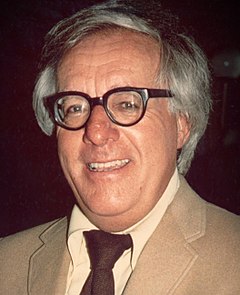
Prepare for spoilers. This is a relatively recent film.
The 2007 film The Mist is based on Stephen King's 1980 novella about dangerous monsters hidden by a thick, inexplicable mist. I had low expectations for this story, because given King's tendency to rehash the works of others, I expected to find justification to my suspicion that this story would rip off The Fog, released by John Carpenter in 1980 as well.
Any similarities or whatever aside, the 2007 film is brilliant. It is difficult for a film to earn my respect when it includes a lot of digital special effects. Usually, no matter how advanced the technology, they don't match the rest of the world. The digital monsters in Silent Hill distracted from any moment of terror I might have felt. In Panic Room David Fincher opts for some impossible photography of digital scenery that I can't understand there being a purpose for. I acknowledge that sometimes you can't tell a fantastic story without fantastic visuals, and I look to Spielberg's 2005 War of the Worlds, a film so awash in cohesive special effects that I never felt distracted.
The monsters in The Mist are not natural-looking. They tend to err on the cartoony side. But what makes this forgivable is the way that the film does not rely too heavily on the monsters to tell its story. The film is not about people fighting monsters. The creatures are a reminder of the stakes of the situation. This film could have been done without the lavish visuals. I can imagine it even being a stage play, where the monsters are offstage. This attests to the strength of the story. The Mist is the heir to Shyamalan's Signs as a film about people, who may happen to encounter some CGI.
A question that you've got to ask when a 27 year old story gets made into a movie for the first time is "why now?" There are two relevant facets to the plot that speak to our era. The first is that of the military saddling the public with something terrible. In this case, the military higher-ups unleashed other-dimensional monsters into Maine. The obvious parallel is the war in the Middle East, where military higher-ups have committed Americans in every possible way to a mistake, requiring continual sacrifices to right that wrong.
The second, and more affecting facet, is the situation with Mrs. Carmody. Carmody is a local pariah, with an alluded-to history of instability. She embodies a fervent Christian fundamentalism, which initially gets under the skin of everybody in the film, especially those she tries to "save." As conditions worsen, her sway over the other characters grows. Rather than leave any possibility for her legitimacy as a prophet, Carmody is portrayed as having her ego strengthened as her cult of personality grows.
Mrs. Carmody's place in the story is that of the most strident, maddening voice you'll ever hear, that doesn't go away and is multiplied by its listeners. She's the film's Glenn Beck or Pat Robertson. She'd be the Sarah Palin if the film had come out a year later. Carmody manifests the infurating feeling of being trapped that we may feel in the political world. It's the feeling of hearing people say horrible things and not being allowed to stop them, because their rights are protected. Mrs. Carmody embodies the feeling of being a guest at a table where the host makes a homophobic remark and everyone else is laughing along, or listening to people defend the murder of Dr. George Tiller on the news. Whenever someone rebuffs Mrs. Carmody in the film, it's a moment of liberation from the tyranny of political correctness. When Ollie tells her to shut up, I feel conflicted, because as much as I want her to can it, I recognize her right to her worldview. When Irene hits her with a can of peas, chiding that stoning is allowed in the Bible, I am conflicted, because her argument is fallacious. But when she and her rabble become murderous and Ollie shoots her dead, I just want to high-five everyone in my apartment complex.
I bet that's how prosecuting attorneys turn into conservatives; watching criminals get off on their protected rights must make it feel damn good to put one away when you've finally got some good evidence.
Finally, I love the scene near the end where Ollie pulls a gun and the knife-wielding zealots back off. The gunshots at Mrs. Carmody call them out on their faith. Suddenly, the wrath of God that compelled them to murder isn't quite as serious as a grocer with a revolver. It's like The Lord of the Flies for grownups, except... No, that's exactly what it is.



